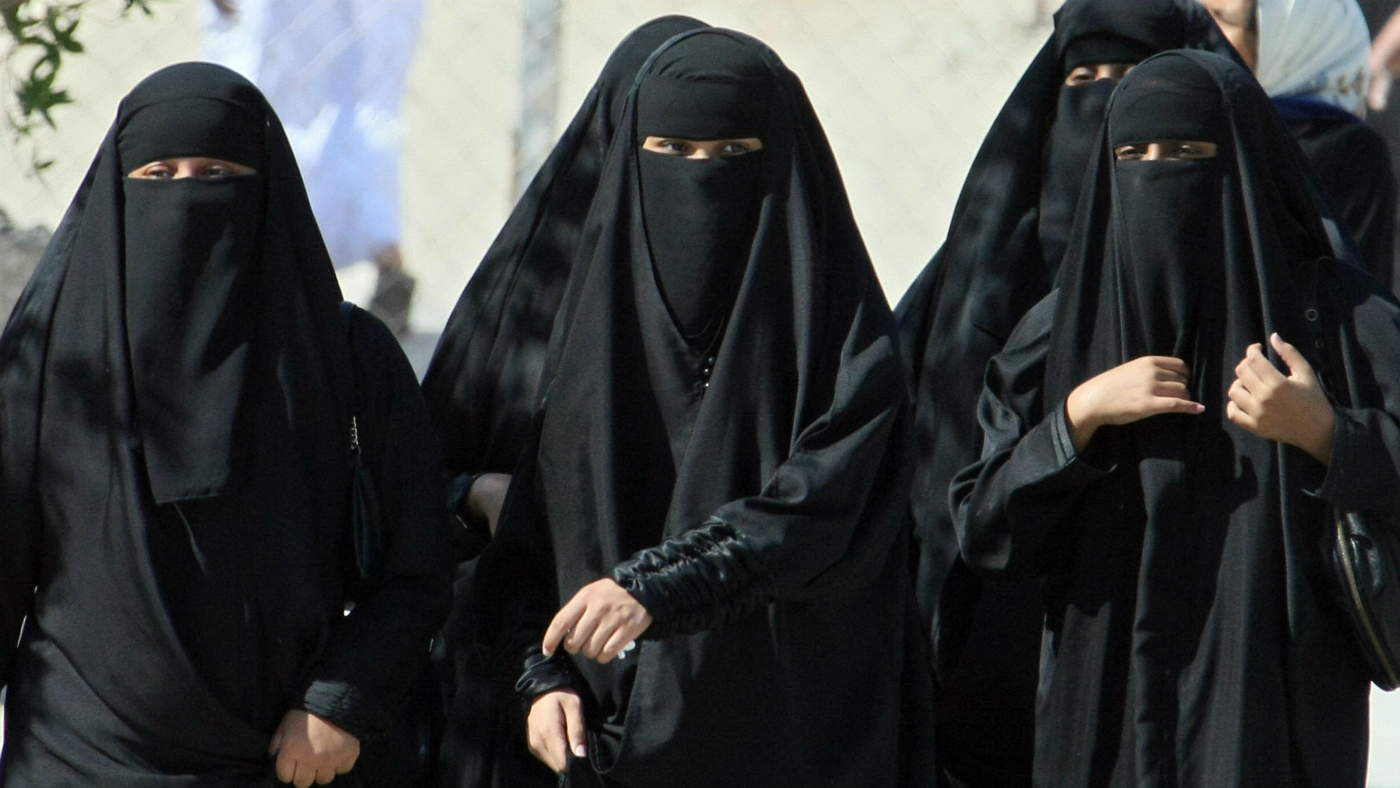Saudi Arabia plans to behead female political activist
Human rights groups have condemned the decision by Saudi prosecutors

A free daily email with the biggest news stories of the day – and the best features from TheWeek.com
You are now subscribed
Your newsletter sign-up was successful
Saudi Arabia is coming under severe criticism for seeking the death penalty for a woman because of her political activism, reports suggest.
The Independent says Israa al-Ghomgham, 29, was arrested along with her husband Moussa al-Hashem in December 2015 “for their roles in organising anti-government protests in eastern Qatif province in the aftermath of the Arab Spring”.
Charges against her include incitement to protest and providing moral support to rioters. Ghomgham is the first woman in Saudi Arabia to be sentenced to death for political protests.
The Week
Escape your echo chamber. Get the facts behind the news, plus analysis from multiple perspectives.

Sign up for The Week's Free Newsletters
From our morning news briefing to a weekly Good News Newsletter, get the best of The Week delivered directly to your inbox.
From our morning news briefing to a weekly Good News Newsletter, get the best of The Week delivered directly to your inbox.
Sarah Leah Whitson, Middle East director at Human Rights Watch (HRW), said in a statement on Wednesday: “Any execution is appalling, but seeking the death penalty for activists like Israa al-Ghomgham, who are not even accused of violent behavior, is monstrous.”
The Guardian adds that ALQST, a London-based Saudi rights group, also reported on Ghomgham’s case earlier this week.
Ghomgham’s situation has also ensured that the vitriolic diplomatic dispute between Saudi Arabia and the government of Canada rumbles on. Canada has been an outspoken critic of the Saudis’ supposedly unlawful detention of activists, and the country’s Foreign Affairs Minister Chrystia Freeland said of Ghomgham: “Canada is extremely concerned by the arrests of women’s rights activists.
“These concerns have been raised with the Saudi government. Canada will always stand up for the protection of human rights, including women’s rights and freedom of expression around the world.”
A free daily email with the biggest news stories of the day – and the best features from TheWeek.com
The public prosecutor has recommended the execution of five other defendants under anti-terrorism laws during a court hearing earlier this month.
Saudi Arabia is an absolute monarchy in which political parties and political protest are prohibited by law. However, a drive for reform has taken place over the last two years, with women being allowed more rights than previously,and a number of gender segregation laws being lifted.
Despite this, 146 people were executed in Saudi Arabia last year, according to Amnesty International. Beheading is the most common method of capital punishment in the country.
-
 James Van Der Beek obituary: fresh-faced Dawson’s Creek star
James Van Der Beek obituary: fresh-faced Dawson’s Creek starIn The Spotlight Van Der Beek fronted one of the most successful teen dramas of the 90s – but his Dawson fame proved a double-edged sword
-
 Is Andrew’s arrest the end for the monarchy?
Is Andrew’s arrest the end for the monarchy?Today's Big Question The King has distanced the Royal Family from his disgraced brother but a ‘fit of revolutionary disgust’ could still wipe them out
-
 Quiz of The Week: 14 – 20 February
Quiz of The Week: 14 – 20 FebruaryQuiz Have you been paying attention to The Week’s news?
-
 Epstein files topple law CEO, roil UK government
Epstein files topple law CEO, roil UK governmentSpeed Read Peter Mandelson, Britain’s former ambassador to the US, is caught up in the scandal
-
 Iran and US prepare to meet after skirmishes
Iran and US prepare to meet after skirmishesSpeed Read The incident comes amid heightened tensions in the Middle East
-
 Israel retrieves final hostage’s body from Gaza
Israel retrieves final hostage’s body from GazaSpeed Read The 24-year-old police officer was killed during the initial Hamas attack
-
 China’s Xi targets top general in growing purge
China’s Xi targets top general in growing purgeSpeed Read Zhang Youxia is being investigated over ‘grave violations’ of the law
-
 Panama and Canada are negotiating over a crucial copper mine
Panama and Canada are negotiating over a crucial copper mineIn the Spotlight Panama is set to make a final decision on the mine this summer
-
 Why Greenland’s natural resources are nearly impossible to mine
Why Greenland’s natural resources are nearly impossible to mineThe Explainer The country’s natural landscape makes the task extremely difficult
-
 Iran cuts internet as protests escalate
Iran cuts internet as protests escalateSpeed Reada Government buildings across the country have been set on fire
-
 US nabs ‘shadow’ tanker claimed by Russia
US nabs ‘shadow’ tanker claimed by RussiaSpeed Read The ship was one of two vessels seized by the US military